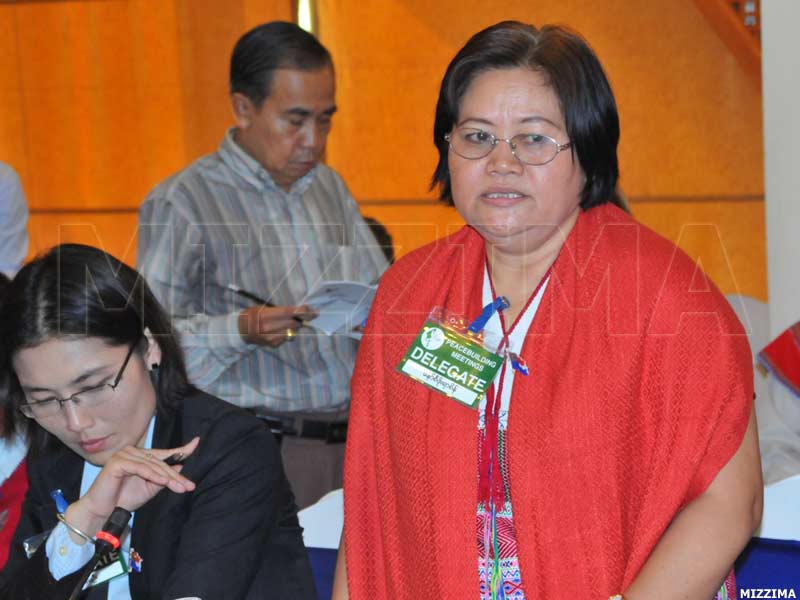The Karen National Union (KNU) delegation has taken its peacemaking work to Rangoon, where it will meet with government officials before meeting with Aung San Suu Kyi on Sunday.

Working to achieve ethnic peace has been cited as a top goal of Suu Kyi. The KNU delegation, led by General-Secretary Naw Zipporah Sein, began its second round of talks with the government on Wednesday in Pa-An, and has now moved the talks to Naypyitaw. A cease-fire was signed on January 12, ending a 63-year-old armed struggle against the government.
Regarding the peacemaking process, President Thein Sein has outlined three steps to peacemaking: to achieve regional or state-level cease-fires, to set up political parties and to take ethnic political issues to be discussed in Parliament.
KNU peacemakig details left for further discussion at the Union level include opening liaison offices in designated cities; closer communication designed to prevent armed clashes, coordinating how government funds and programs will be implemented in the state, and establishing a process for aid to be directed to Karen refugees.
The Karen civil war, which has gone on for more than six decades, has been one of the bitterest rebellions in the country’s history, causing generations of Karen to flee to the jungle in fear of the lives. More than 100,000 Karen now live in refugee camps on the Thai-Burmese border, and tens of thousands have moved to third countries through the help of international resettlement programs.
During the cease-fire talks, KNU delegation member Brigadier General Johnny told AFP, “This time they didn't ask us to give up our arms, and they said they just want to work for equal rights for ethnic groups.”
But he added: “We have been fighting for 60 years and one meeting alone will not end it.” The KNU has signed six cease-fire agreements in the past with the government, all of which have been broken.
One of results of the cease-fire and peace talks is an easing of tension in an area controlled by the KNU bordering on the Dawei deep-sea port special industrial zone project in southern Burma. The KNU had blocked construction on a road in the area that would link the mega-project to Thailand, which will receive oil and gas from the project, which is estimated to cost $50 billion when it is completed. The project will link the Andaman Sea to Southeast Asia, greatly reducing the cost of energy shipments.
The cease-fire agreement may eventually lead to meeting the humanitarian needs of Karen refugees, which has been a point of concern by international governments who want to be given unfettered access to the area.
A cease-fire agreement has already been reached with the Shan State Army (South) in eastern Burma, but peace talks with the Kachin Independence Army (KIA) have proven to be one of the most difficult, despite an order last month by President Thein Sein for the military to end all offensive operations. Clashes are still taking place, according to the KIA.


